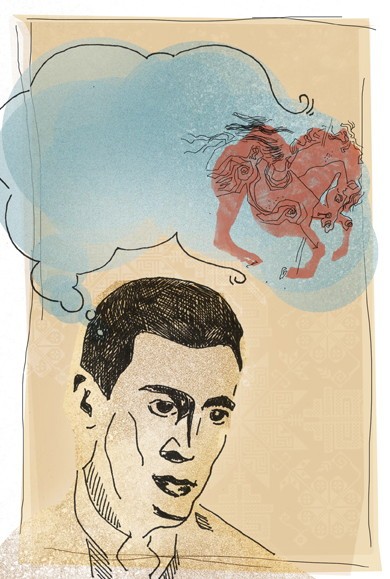Salinger wins suit over Catcher sequel
But who really holds the rights to Holden?
The Catcher in the Rye is one of those ecumenical books deemed to be a classic – mandatory reading for the masses and a mainstay of the high school English curriculum. But when a piece of literature becomes a part of our culture, where does creative freedom end and plagiarism begin?
A great many have become enthralled and subsequently zealous when it comes to Holden Caulfield, the unparagoned voice of the novel and one of the literature’s most celebrated anti-heroes.
Now, a Swedish publisher writing under the assumed name John David “J.D.” California has penned an unauthorized “sequel,” 60 Years Later: Coming through the Rye. Catcher’s author J.D. Salinger has successfully sued him to ban publication of the book.
The presiding judge ruled for Salinger in early July, despite the assertion from California’s camp that the banning of the novel impinged on the California’s right to freedom of expression and creativity.
J.D. California has been the focus of much media attention and Internet speculation for the past couple of months. Needless to say, Salinger was not the only one adamantly opposed to a desecration of the sacrosanct Caulfield.
We got in touch with California via e-mail, who set the record straight. Sort of.
“I think if anybody is capitalizing on this it’s Salinger. I have heard sales of Catcher have gone sky high…I don’t think suing someone is the best solution for a man who just wants to be left alone,” explains California, whose real name was recently revealed to be Fredrik Colting.
You mean J.D. California isn’t his real name?!
For the past 50 years or so, Salinger has fashioned himself as the archetypal eccentric writer: reclusive and litigious. He has even sued to stop his own work from being published. Given his past behaviour and the current media frenzy surrounding 60 Years Later, questions have been raised as to whether the book was written purely to capitalize off of Salinger’s highly publicized fury. Many have speculated that the book doesn’t exist at all. Colting categorically denies both claims.
“It’s not a money thing for me. I have another job. I have enough to eat and live fine as it is. This is about creating. I find it appalling that things [which] belong to everyone, things you can’t own like fantasy and creativity, are being vandalized by greedy authors and their childish lawyers, hiding behind laws that were meant to boost creativity and creation and not hinder it.”
“ In many ways I believe 60 is a much more creative story than Catcher.
J.D. California, author of 60 Years Later: Coming through the Rye
Catherine Hunter, head of the English department at the University of Winnipeg, thinks Colting has a valid argument.
“The question of whether or not something is plagiarism or parody goes to intent. In this case, the author wasn’t trying to pretend that he invented Holden Caulfield. Certain artworks and characters go beyond themselves and become culturally iconic. How can they not be reinvented?”
Caulfield has certainly carved out a corner of the public consciousness. This means that in a sense, he also belongs to those who have come to identify with him.
Rachel Vien, a 23-year-old University of Manitoba graduate, believes that of any book she has read, Caulfield as a character has been easiest to identify with.
“Holden is very relatable in the sense that he was just a school-aged kid who was trying to find his way through life in his own unique way. He seemed to have different motives than everyone around him who was the same age.”
Unauthorized sequels are not fresh territory. But while many canonical authors have had their works pillaged – think of the recent smash Pride and Prejudice and Zombies – this case is slightly different because Salinger, albeit 90-years-old, is still alive and game for a fight when it comes to protecting his intellectual property. The plot of 60 Years Later includes a characterization of Salinger as he relates to Caulfield, who is now in his 70s and escapes a retirement home to roam the streets of New York once again.
“I feel sympathy for Salinger,” adds Hunter. “But as a citizen within society I find that banning the book could be creatively stifling.”
Colting’s lawyers argued the same thing. They also attested that 60 Years Later was not a sequel at all but rather a critique of Catcher.
Unfortunately, the judge did not agree.
“The essence of 60 is to discover the results of when a writer creates and the responsibilities he has to it after…It’s a modern day Frankenstein. I truly believe it has a lot to offer readers in terms of viewing the Salinger/Holden relationship. Many literary experts have examined and commented on Catcher. The fact that I’ve done the same in a highly creative way should make no difference,” Colting said.
“In many ways I believe 60 is a much more creative story than Catcher...I had no idea Salinger would sue us. I’m just a guy from Sweden!”







